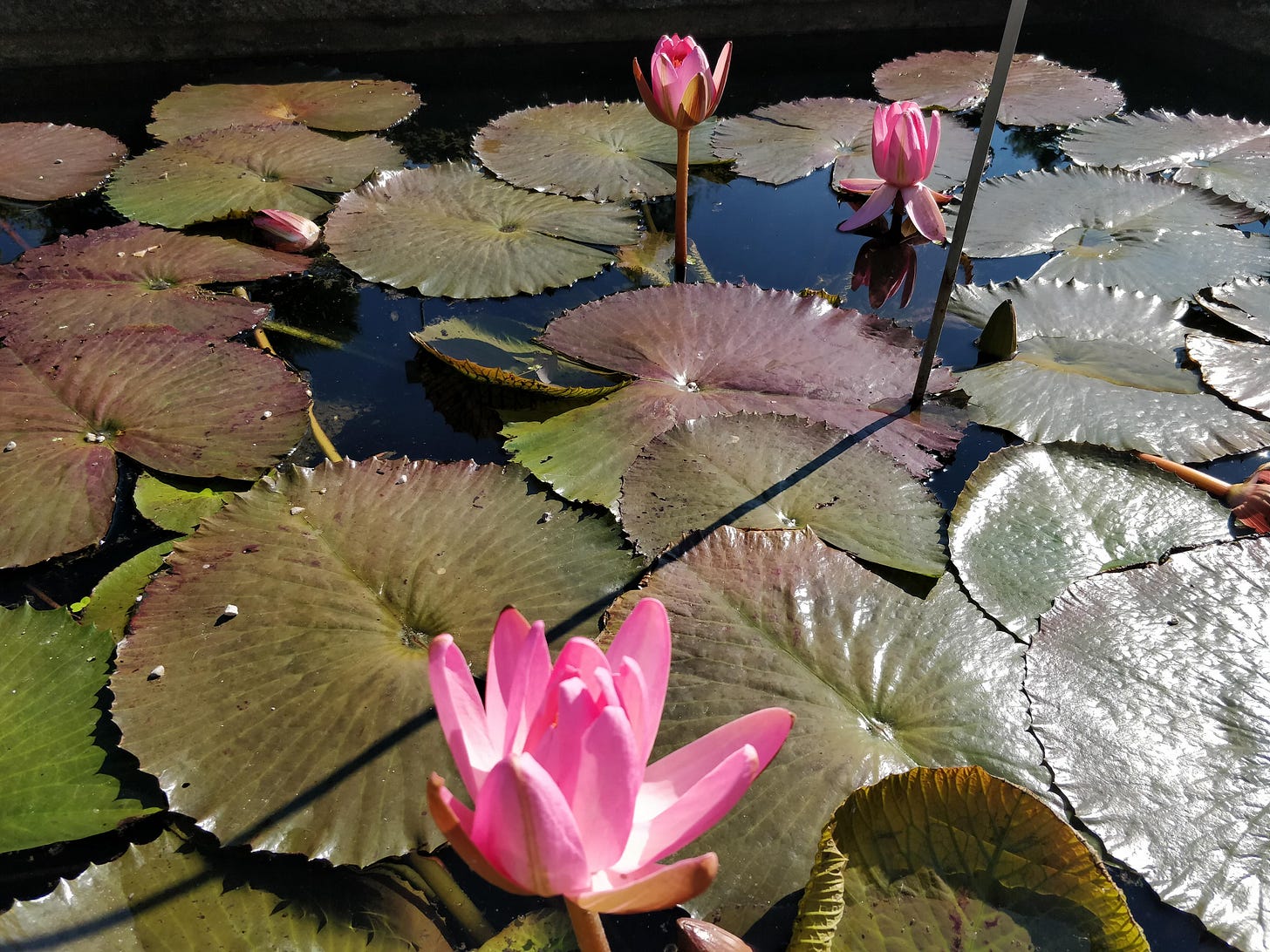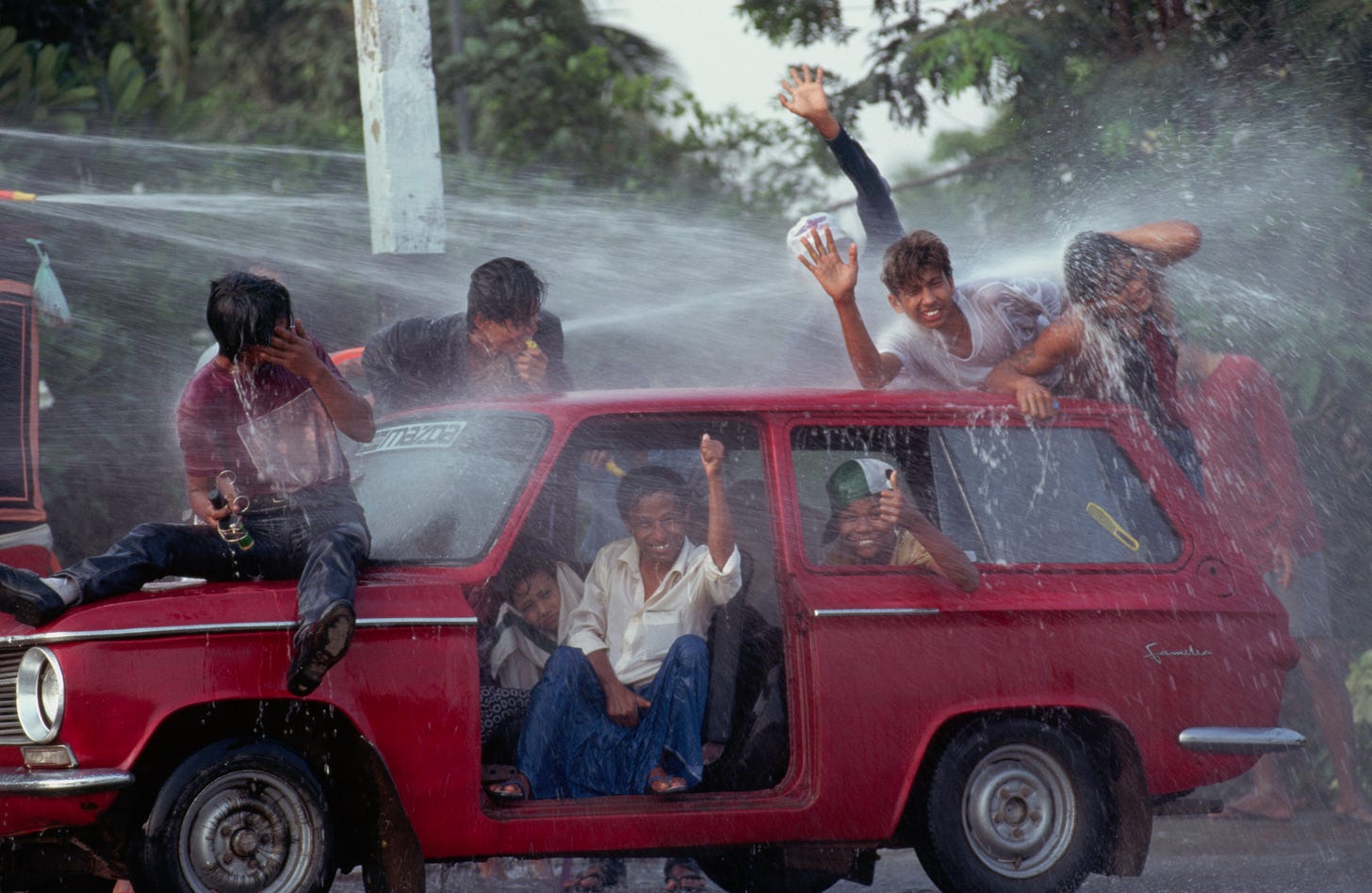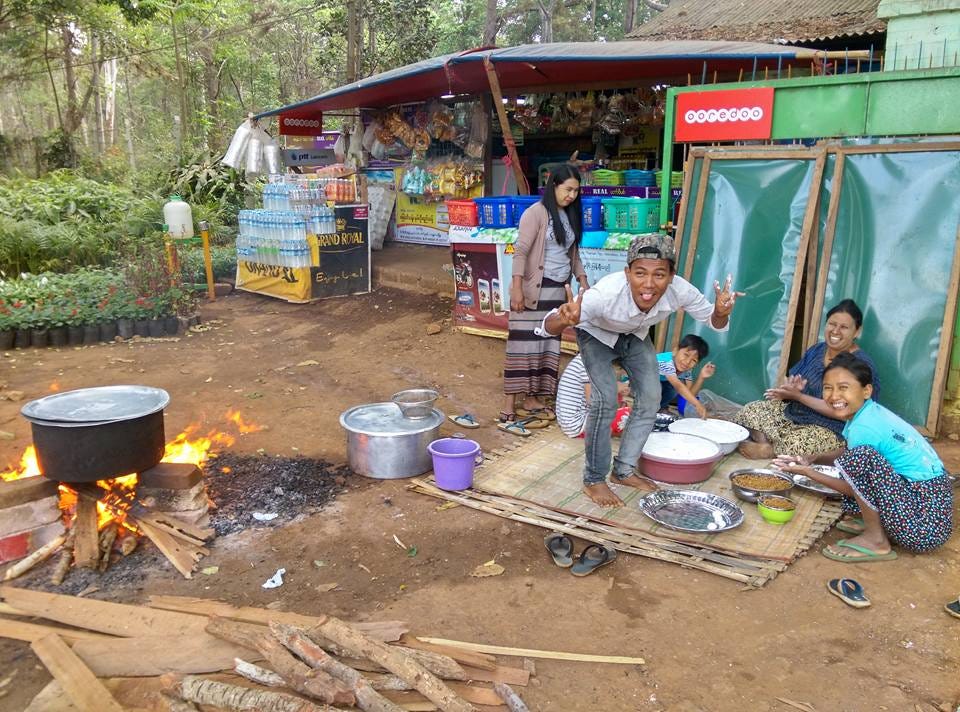It's That Time of The Year...
Reflections on water and new beginnings
Friends have often asked me how I was able to keep up with the weekly publishing schedule for Thin Ink.
Usually they are surprised by the seemingly never-ending supply of food systems topics I can write about. Sometimes, though, they’re asking where I find the time.
I tell them I always find a way, because this isn’t a big process. Sometimes the topics come to me on a Thursday, other times I know weeks in advance what I will want to write. If I’m particularly organised, I start prepping on Monday. More often than not, I set aside time on Thursday and Friday to work on Thin Ink so that it’s as fresh as possible.
Well, this week, I don’t have an answer for the second question. I ran out of time.
I spent a good chunk of Thursday listening, reading, writing and speaking Italian - i.e. taking a language exam - and cramming as much as I can on any free evening and afternoon the week before. Combine that with the responsibilities at my day job and the never-ending life admin (yes I’m still working to replace documents I lost when my bag was stolen in London in January), I am now totally depleted.
In other words, it’s gonna be short one, folks. Normal service will resume next week.
This week, I’m thinking about water. This is mainly because Saturday, Apr 13, is the beginning of what would normally be the most fun and exciting festival in Myanmar.
“Thingyan” or Water Festival, marks the passing of an old year and the ushering in of a new one under the Burmese calendar. It is usually celebrated by revellers all across Myanmar gleefully throwing water over each other.
When I was growing up, it was the only time in the year when we could get away with teasing our elders. The festival usually lasts three days, unless it’s a leap year, in which case you get four full days of water-throwing.
So it is not a surprise that after all that fun and mayhem, we spend New Year’s Day in a much more tranquil and subdued mood: visiting pagodas, making merits, and paying respect to the elders we poked fun at just days before.
Some mark the fresh start by releasing animals held in captivity: think caged songbirds and fish destined for tanks or markets, which they buy from entrepreneurs conveniently stationed in famous public spots.
I’ve written before about Thingyan in detail so I would direct you to them if you want to learn more, and yes it is similar to the celebrations held also in Thailand, Cambodia, and Laos.
Two years ago, I wrote about how Thingyan works and the dish that’s synonymous with the festival.
Last year, I shared two family recipes and my fears that things were getting worse back home under a brutal military dictatorship that illegally seized power in February 2021.
So I’m thankful that there is some good news this year, like this one of troops guarding a vital border town agreeing to surrender to the resistance forces. Of course, the hope and the optimism are tempered by other news, like this one that said the middle class is now half the size it was three years ago.
This figure is based on a just-published U.N. Report, which itself was based on a survey of over 12,000 people and said Myanmar is “firmly in the L-shaped recession category, by far the worst recession path.”
It made me think of all the ordinary people I met and spoke to in 2016 and 2017 when my friend Kelly and I embarked on a project to chronicle the lives and histories of ordinary people in Myanmar.
Almost exactly eight years ago, at the height of optimism about Myanmar’s future, we travelled to the Naga Self-Administered Zone and during Thingyan. This is a three-township province in the north of Myanmar.
We met some amazing people (you can read the stories at the bottom of this page) and had an unforgettable time. But it was this grandmother, with her beautiful, haunting voice, and her lovely granddaughters, that I thought of when I read the UNDP report.
I’ve also been thinking about water because I’m researching water security and water governance issues for an op-ed.
We often spend hours reading, watching, and talking about food (and/or) discussing the state of the world’s food systems without giving much thought to a fundamental element of agriculture: water. I’ll be the first to raise my hand as being guilty on that front.
There was a flurry of stories about water a few weeks ago around World Water Day (March 22) but often, I don’t think journalists do a solid enough job tracking the state of our water resources. And unfortunately, they’re not doing so well.
So if you’re going to read only one story this week, make sure it’s this deeply-reported piece from Politico’s Paula Andres, about how intensive pig farms are sucking up much of drought-hit Catalonia’s precious water resources while, at the same time, polluting them through excessive dumping of animal feces.
This is just one small aspect of water insecurity linked to food systems. There are broader issues to tackle too. A recent report from UNESCO warned that water crises actually threaten world peace.
“As of 2022, roughly half of the world’s population experienced severe water scarcity for at least part of the year, while one quarter faced ‘extremely high’ levels of water stress, using over 80% of their annual renewable freshwater supply,” it said.
Tackling these big challenges goes beyond a single country or region or even continent, of course. I just hope that in the near future, we can party like it’s 1386 - that’s the new year according to the Burmese calendar.
Thin’s Pickings - Burmese Food Edition
An Introduction to Burmese Cuisine - Great British Chefs
If you’re not familiar with Burmese food, this piece from MiMi Aye, whose cookbook I swear by, is a great way to dip your toes into this little-known cuisine.
How the Bay Area Became a Mecca of Burmese Cuisine - The New York Times
Soumya Karlamangla on the cornucopia of Burmese restaurants in San Francisco. Mandalay, a popular place she mentioned, just won the prestigious James Beard award.
Finding Home in a Bowl of Noodles - The Kite Tales
This was the first time yours truly took a stab at writing about the dishes and flavours I grew up with. I’ve always enjoyed cooking - it’s one of the few times when I’m not thinking about work - but it was only during the COVID-19 lockdown in Italy that I truly discovered the comfort it gives me.
As always, please feel free to share this post and send tips and thoughts on mastodon @ThinInk@journa.host, my LinkedIn page, twitter @thinink, or via e-mail thin@thin-ink.net.








Then it is time for a happy new year wish to you, isn't ? Amusing enough for a western educated person, I learned from a Nepalese friend that year 2081 begins in Nepal... All the best for your new year, JFH